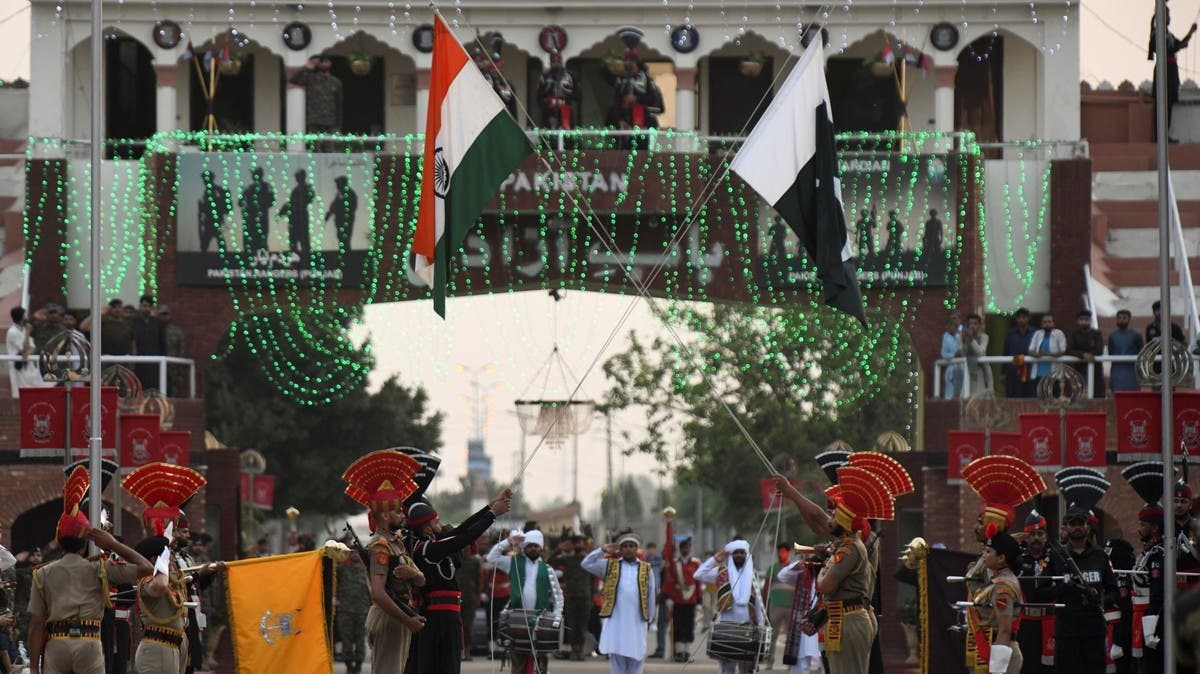South Asian archrivals India and Pakistan exchanged lists of each other’s citizens held in prison Saturday through their respective diplomats in Islamabad and New Delhi.
The two sides also exchanged lists of their nuclear assets and facilities under an agreement in place for three decades, according to official statements from the two nuclear-armed rivals.
Pakistan and India have had strained relations since their independence from colonial British rule in 1947 over the Himalayan region of Kashmir.
Pakistan shared with India's top diplomat in Islamabad on Saturday a list of 628 Indian prisoners being held in Pakistan, including 577 fishermen accused of illegal fishing in Pakistani territorial waters, and 51 others.
For the latest headlines, follow our Google News channel online or via the app.
The practice is consistent with a 2008 agreement between the two sides on consular access to prisoners. The deal requires them to exchange lists of prisoners in each other’s custody each January and July.
India simultaneously shared with Pakistan its list of its neighbor's prisoners being held in India. India handed over lists of 282 Pakistani prisoners and 73 fishermen. Details on the civilian prisoners India has in its custody weren’t available.
Last January, India handed over to Pakistan lists of 263 Pakistani prisoners and 77 fishermen in India's custody.
Similarly, Pakistan in 2021 shared lists of 270 Indian fishermen and another 49 prisoners in its custody.
The two sides arrest each other's fishermen for crossing the unmarked sea frontier between the two countries. Fishermen in search of a better catch with no modern navigational technology often enter into the other country's territorial waters. The maritime security agencies of Pakistan and India seize their boats and put them in prison. The fishermen usually get released only after the two countries hold negotiations. Normally the fishermen spend years behind bars with no formal trial.
Neither Pakistan nor India have provided details about the other civilian prisoners. But arrests on both sides have included violations such as overstaying visas or travel to unauthorized cities and towns.
The nuclear-armed south Asian rivals also exchanged lists of nuclear installations and facilities Saturday.
The exchange is part of a pact signed by the two countries in December 1988 called the Prohibition of Attack against Nuclear Installations and Facilities. It was implemented in 1991.
Neither side gave details of nuclear facilities and installations but it is largely believed that the list is comprised of known nuclear facilities.
The picturesque Kashmir region is divided between India and Pakistan. Both claim it in its entirety and fought two of their three wars over the region.
Relations between the two countries became more tense after India stripped Indian controlled Kashmir of its special status in its constitution in August 2019.
Read more:
India, Pakistan clash at UN over accusations of extremism
Five Indian soldiers killed in ambush in Kashmir near border with Pakistan

 World2 years ago
World2 years ago
 World2 years ago
World2 years ago
 Entertainment7 years ago
Entertainment7 years ago
 World7 years ago
World7 years ago
 Entertainment7 years ago
Entertainment7 years ago






